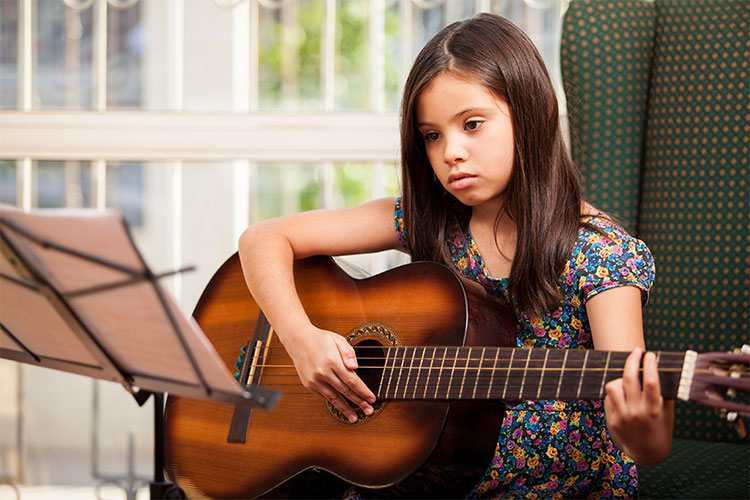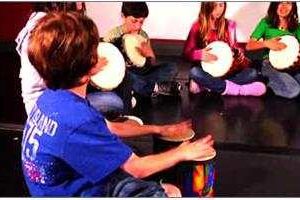How often should my kid practice each week? Do I need to practice every day? What if I can’t make room in my schedule to practice [insert your instrument here] as much as I should? These are questions we hear from students and parents so often that I thought I’d share some insights from a teacher’s point of view.
So, do I really need to practice regularly?
Well, how good to you want to be? How much you practice affects how well and easily you learn new material and develop skill. This makes sense, right?
OK, so how much practicing do I have to do weekly?
Good question. It depends on several things: what level you’re at now, whether you have something specific to practice for (a concert, evaluation, etc.), and how much time—realistically—you have to dedicate to your practice.
For the sake of this post, let’s assume that the student is around a beginner level. We usually recommend around 10 to 20 minutes at the piano, three to five times per week. Time will increase as the student progresses.
Really? Will 10 minutes a few times a week really do much?
Totally! And, if your child is still relatively young (5 years or under) you can even break up the time: five minutes in the morning and then one quick pass of a couple of songs before dinner time is great. Whatever you can manage to fit in to your day.
It all adds up! Studies show that shorter, more frequent practice and repetition works better to rewire our brains so that this set of new and complex actions becomes smoother and more comfortable with time.
(So take that into consideration next time you’re cramming in an hour-long practice session right before your lesson!)
I got my kid to sit down at the piano today but all she did was play around and make up her own “songs”. Does that still count?
Hooray! Yes, this is great news. Sometimes just sitting down and tinkering around with your own sounds is good enough for that day. Sometimes, we really don’t feel like playing scales or that challenging new piece that’s taunting us. Reminding ourselves of what we love about music is the most important and fun part of taking music lessons.
“Playing around” is great! I actively encourage students to improvise and create new sounds, and together in lessons I even guide them toward song writing on their own. Getting those creative juices flowing is necessary and welcomed.
However, playing those scales is just as necessary, and knowing scales and improving technique will help with that lovely creativity down the line. Balance is key.
Ooh, you’re talking about scales now. I don’t know if I really need to do those. I just want to play for fun.
I get this one a lot. When even mentioning the word “scales” to my students I get vacant or weary gazes. Some adults tend to think of them as old fashioned and unimportant and kids can see them as scary or boring.
I could write a whole post just about scales, but for now I’ll just say this: scales are as important to playing an instrument as fruits and veggies are to eating: you can’t live without them!
All right, I get that practicing is important. So how should I divide my time while practicing? What should I practice the most?
How you break down your practice time is actually pretty important. Just as important as how long and frequently you get to your instrument.
When practicing one specific piece: If you’re having trouble with certain measure or passage make sure to take your time with them and go over a section slowly (hands separately for piano), while working out any kinks that are getting in your way. Repetition is integral in smoothing out those tough spots.
Trying a piece from the beginning straight through to the end at a speed that’s not quite working for you isn’t going to help much. Not only is it not the most effective use of your time, it will leave you feeling frustrated and will leave the piece not much further along than when you started.
When practicing several pieces: Warm up with your scales and other technical work (chords, arpeggios if you’ve got them, etc.), then move on to the new piece of the week. We have more stamina at the beginning of our practice sessions, so don’t spend all your energy first on pieces that you already know—instead, dive into the new piece of the week and make a little headway before taking a break and playing an old favourite.
When preparing for an exam or concert: This is probably best discussed and decided between you and your teacher. You will have a good idea of what to play and in what order as planned out for you during your lessons. Making a practice plan and coming up with some goals with your teacher is an important part of your lesson experience. Try to come up with realistic and achievable practice goals that will leave you feeling satisfied and proud of your accomplishments!
Happy practicing to all of you!
Julie Sousa is the founding director at Annette Street Music in Toronto. This article was republished with permission from annettestreetmusic.com.
If you think you have the next Mozart or Hendrix on your hands, check out Music Lessons For Kids in our online directory.
Sign up for our newsletters to get parenting and family fun articles delivered to you!




